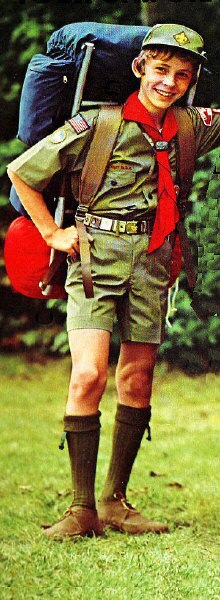Boy Scouts of America v. Dale
Boy Scouts of America et al. v. Dale, 530 U.S. 640 (2000), was a landmark decision of the US Supreme Court, decided on June 28, 2000, that held that the constitutional right to freedom of association allowed the Boy Scouts of America (BSA) to exclude a homosexual person from membership in spite of a state law requiring equal treatment of homosexuals in public accommodations. More generally, the court ruled that a private organization such as the BSA may exclude a person from membership when "the presence of that person affects in a significant way the group's ability to advocate public or private viewpoints". In a 5-4 decision, the Supreme Court ruled that opposition to homosexuality is part of BSA's "expressive message" and that allowing homosexuals as adult leaders would interfere with that message.
Scoutmaster James Dale
Evan Wolfson, attorney for James Dale
Chief Justice William Rehnquist
Justice John Paul Stevens
The Boy Scouts of America is one of the largest scouting organizations and one of the largest youth organizations in the United States, with over 1 million youth, including 176,000 female participants. The BSA was founded in 1910; about 130 million Americans have participated in its programs. Served by 477,000 adult volunteers. BSA became a founding member organization of the World Organization of the Scout Movement in 1922.
Ernest Thompson Seton (left), Baden-Powell (seated) and Dan Beard (right)
Boy Scouts, Troop 10, Columbus, Ohio, 1918
A Venturer traverses a COPE High Ropes course.
Boy Scout, 1974, wearing uniform of the time








